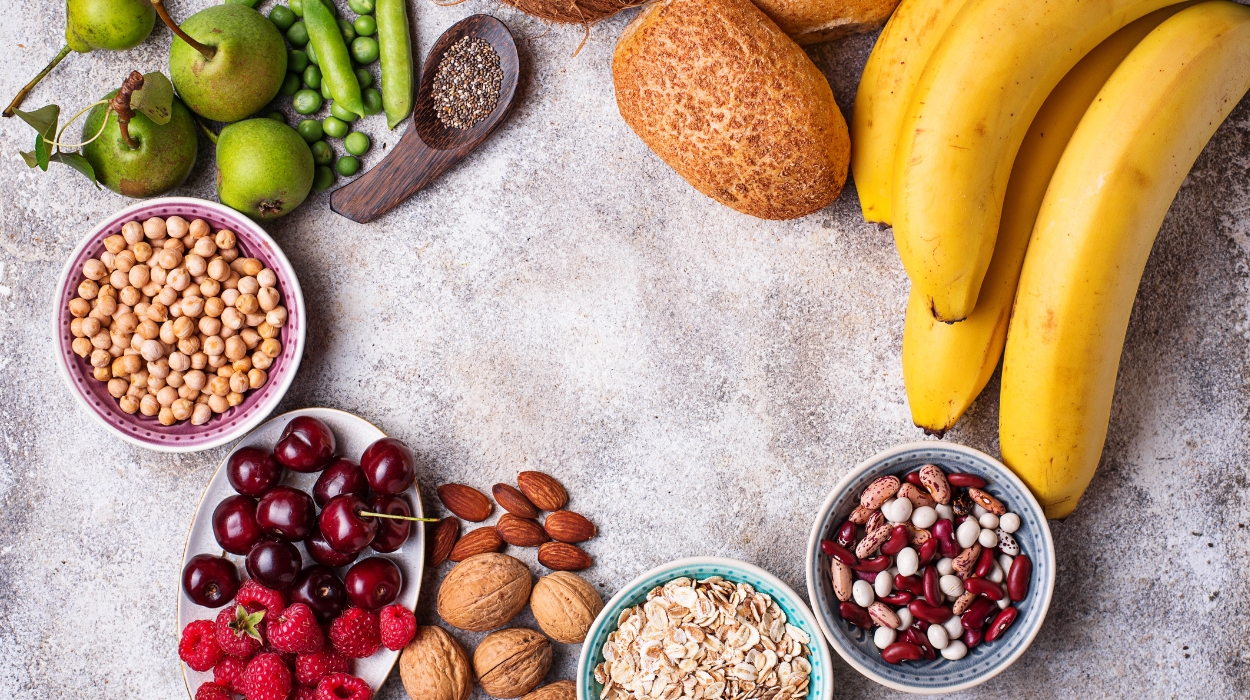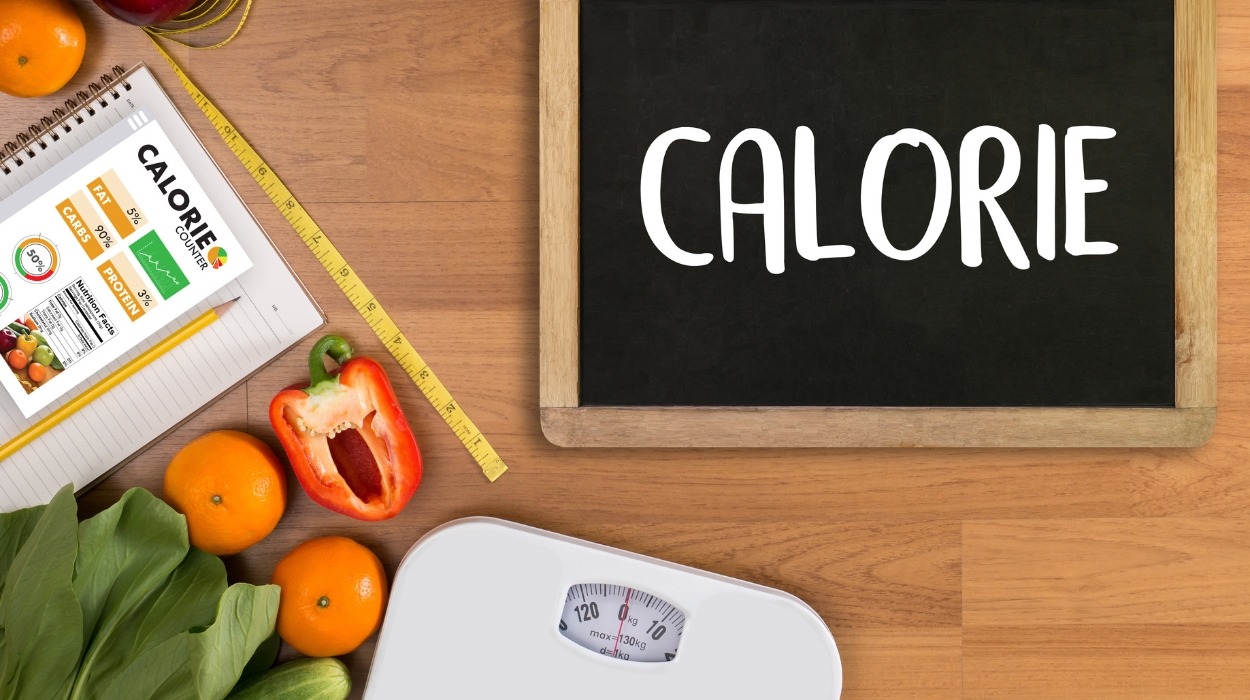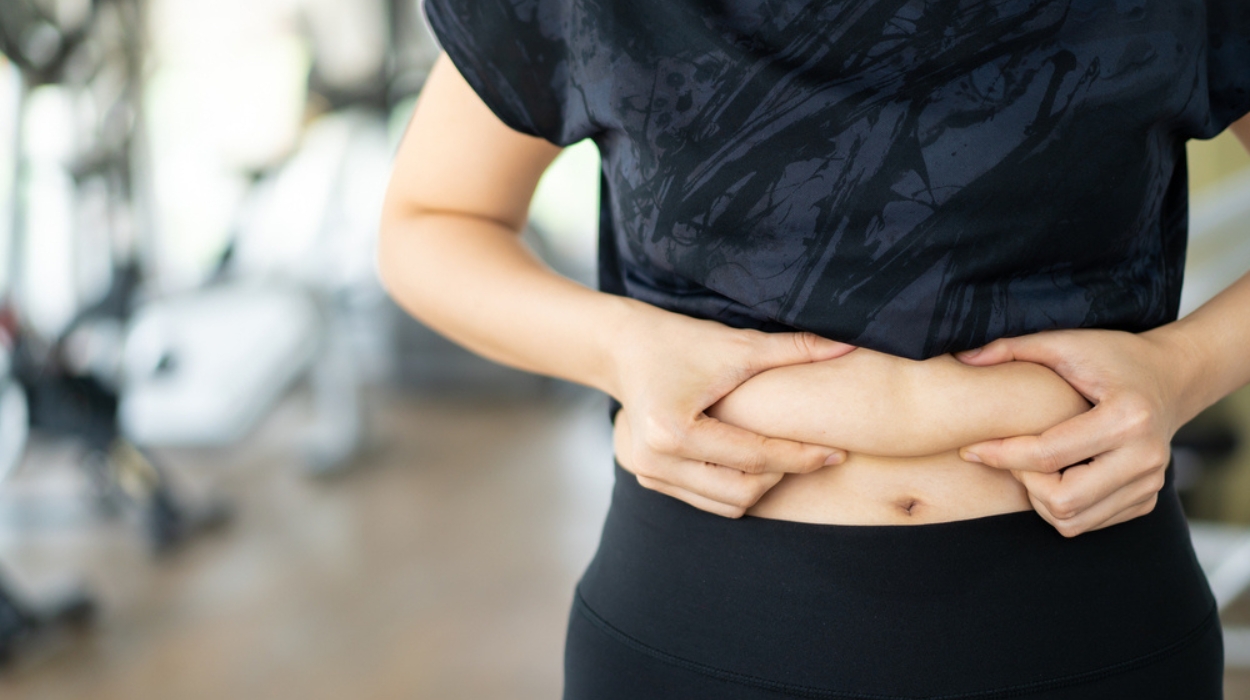Gallbladder removal surgery, also known as cholecystectomy, is the extraction of the gallbladder. It is one of the most common surgical procedures performed worldwide.[1]
The gallbladder[2] is a small organ that sits just below the liver. It plays a crucial role in the digestive tract by storing bile, a digestive fluid that breaks down fats.
With the implementation of less invasive surgical procedures such as laparoscopic cholecystectomy, gallbladder removal surgery is considered very safe[2] in most people.
Immediately following surgery, you can expect some common side effects such as abdominal tenderness, gas, and diarrhea, which can result in a loss of water weight.
Although immediately after the procedure, weight loss is expected, the long-term implications may result in digestive and metabolic issues, making weight management challenging.
This article will explore how to lose weight after gallbladder removal and discuss five tips to help.
How To Lose Weight After Gallbladder Removal
Following gallbladder surgery, the body will undergo metabolic and digestive changes that can increase weight for many individuals. To lose weight following gallbladder extraction, try these five recommendations:
- Eat low-fat foods.
- Increase fiber intake.
- Increase physical activity.
- Count calories.
- Boost water intake.
5 Tips To Lose Weight After Gallbladder Removal
Weight loss after gallbladder removal can be challenging. Following gallbladder surgery, it is crucial to implement a balanced diet and lifestyle changes to manage your weight effectively.
Below, we will discuss five tips on how to stop weight gain after gallbladder removal.
Eat Low-Fat Foods
One of the most important dietary changes to implement is to consume low-fat foods. Without the gallbladder, bile will continuously drip from the liver into the digestive system, which means the body will have a tougher time digesting fat from the diet.
This is because bile is secreted when the body senses fats[3] in the small intestine.
A low-fat diet, notably eliminating processed foods, can help you lose weight after gallbladder removal.
Increase Your Fiber Intake

Increasing fiber is essential for maintaining a healthy digestive system and promoting weight reduction. Fiber is a crucial prebiotic that can help replenish the beneficial bacteria in the gut. It also adds bulk[4] to the stool, which promotes regular bowel movements and prevents constipation. Research[5] has demonstrated increasing fiber consumption can result in weight reductions.
Speak with your doctor about adding high-fiber foods, such as whole grains, fruits, and vegetables to promote fat loss.
Increase Physical Activity
Regular physical activity is essential for weight management after removing the gallbladder. Regular exercise can help burn additional calories and boost the metabolism,[6] which may be lagging post-surgery.
Adults should aim[7] for at least 30 minutes of moderate-intensity exercise five times a week.
Count Calories

A proven way to lose weight is to monitor calorie intake. To count calories, you must calculate the number of calories you need per day based on age, gender, height, and physical activity level. Knowing your recommended total calories per day can help you guide your calorie consumption and ensure you are in a calorie deficit[8] to lose weight.
To promote fat loss by counting calories, limit processed foods and stick to nutrient-dense foods such as fresh fruits, vegetables, and lean proteins.
Boost Water Intake
Staying hydrated is crucial to maintaining overall health and promoting weight reduction after taking out the gallbladder. Research[9] has demonstrated that increased hydration can result in weight reductions through a decrease in appetite and a reduction of fat due to increased fat breakdown.
After surgery, try increasing your fluid intake to boost your weight loss efforts.
Why Do You Gain Weight After Gallbladder Removal?
If you are wondering, “Why am I losing weight after gallbladder removal?” rest assured you are not alone. Many people may experience rapid weight loss immediately after removing the gallbladder due to the typical acute repercussions of the surgery. For overweight individuals, it is possible to have lost 50 lbs after gallbladder surgery.
However, in the long term, not having a gallbladder will result in a lack of concentrated bile that influences many essential bodily functions. Without this bile, several factors can contribute to weight gain after gallbladder removal. We will discuss five reasons for weight gain after gallbladder removal.
Altered Metabolism
For a few weeks following surgery, the metabolism can become impaired due to bile’s crucial role in many metabolic functions. Research[10] has demonstrated that cholecystectomy can result in metabolic dysfunctions that result in increased belly fat, elevated cholesterol and triglyceride levels[11] and increased blood pressure.[12]
Thyroid Changes
The thyroid[13] plays a crucial role in regulating an individual’s metabolism. Bile[13] plays a key role in transforming inactive thyroid hormones into their active form. Without sufficient levels of bile after gallbladder removal, people may experience lower levels of thyroid hormones, leading to a slower metabolism and difficulty burning extra calories.
Impaired Glucose Metabolism
Bile plays a role in cell glucose uptake. When blood sugar remains elevated, it triggers the body to store glucose as fat and can result in weight gain. Research[14] has demonstrated that people who undergo gallbladder surgery have higher fasting blood sugar levels and impaired blood sugar control.
Changes In Gut Microbiome
When the gallbladder is removed, the alterations in the amount of bile in the digestive tract can change the gut flora. In animal studies,[15] these changes have been shown to influence the gut microbiome negatively and may lead to non-alcoholic fatty liver disease.
In addition, imbalances in the intestinal flora of the gut are proven[16] to play a role in obesity.
Inflammation
After surgery, many individuals will experience increased inflammation due to the effects of the surgery. Inflammation can alter hormone levels that play a role in weight regulation.[17]
Additionally, inflammation and elevations in Body Mass Index, or BMI, can cause insulin resistance, which may increase weight.[18]
Healthy Diet After Surgery
After your surgery, it is crucial to maintain a healthy and balanced diet to promote weight loss. Right after surgery, your doctor will provide specific recommendations for your diet as you recover.
There are some general guidelines to promote faster healing and reduce digestive symptoms.
- Eat nutrient-dense food: Incorporate fresh fruits, vegetables, and lean meats into your daily diet.
- Eat low-fat food: Avoid high-fat processed and greasy foods, as well as added oils and butter.
- Eat smaller, frequent meals: Eating smaller meals will prevent overload on the digestive tract.
- Slowly incorporate high-fiber food: These foods must be gradually reintroduced to the diet as you recover. They will support regular bowel movements and promote digestive health.
- Limit spicy foods: Eating too many spicy foods can cause gastrointestinal irritation.
- Stay hydrated: Drink adequate fluids to support digestion and metabolism.
Side Effects Of Gallbladder Surgery And Safety Tips
It is essential to know the potential side effects and follow the appropriate safety measures following gallbladder surgery. Although this surgery has a low risk of complications, there are some expected side effects[19] after removing the gallbladder, which include:
- Diarrhea after gallbladder removal is the most common symptom.
- Bloating due to alterations in digestion.
- Abdominal pain can occur due to changes in digestion and surgical manipulation.
Some people may experience more severe symptoms[19] similar to gallstones. These symptoms can include:
- Jaundice.
- Indigestion.
- Fever.
Rare complications can arise and can be severe. Potential serious adverse complications[20] include:
- Surgical site infection.
- Injury to the bile duct.
- Damage to the intestines or blood vessels.
- Excessive bleeding.
- Bile leakage.
- Blood clots.[21]
Individuals should follow their physician’s post-surgical instructions for wound care, take prescribed medications, and follow dietary restrictions to ensure a safe recovery.
Conclusion
Gallbladder surgery can have ramifications for maintaining healthy body weight, but by implementing the right post-surgery strategies, you can successfully lose weight. It’s essential to follow a low-fat diet, increase your fiber consumption, engage in regular physical activity, monitor calorie intake, and stay hydrated to lose body weight.
As with any surgery, you should always consult a healthcare professional for individualized recommendations and guidance on achieving a healthy weight throughout your recovery.
Frequently Asked Questions
Losing weight following surgery might be more difficult due to changes in digestion and metabolism. Implementing appropriate dietary modifications, exercise, and lifestyle changes can help promote weight reduction.
Follow gallbladder surgery, stick to reduced-fat foods, slowly introduce fiber, and incorporate lean proteins.
Taking out the gallbladder does not directly cause belly fat. However, changes in metabolism and digestion can result in weight gain, which may increase abdominal fat accumulation.
Immediately after gallbladder removal, many individuals will lose weight due to abdominal pain, a limited diet, and alterations in digestion. However, in the long run, weight increases are expected as metabolic changes occur.
 Evidence Based
Evidence Based

